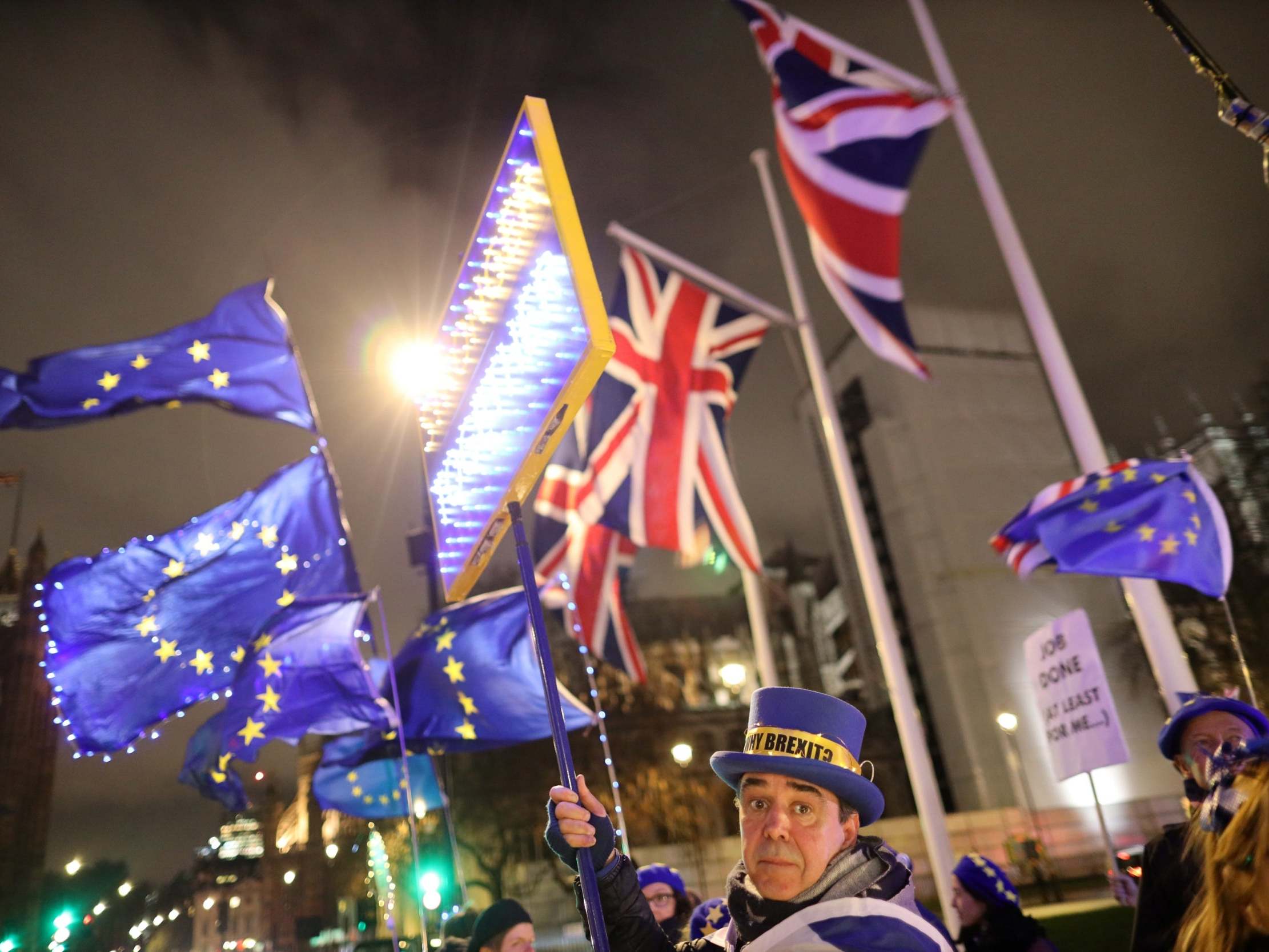Remainers lost the war – now they should give Boris Johnson a chance to make Brexit work
Inside Westminster: The prime minister mustn’t forget that the referendum result wasn’t 80-20, writes Andrew Grice


As Brexit Day approached, the air at Westminster was thick with what ifs, if onlys and chatter about what might yet be – that one day, the UK might rejoin the EU.
In private, some MPs dare to believe that re-entry is a possibility – that, for example, Labour might fight the general election after next on a rejoin platform. Yet they will undermine their own case if they go public too soon.
Boris Johnson has outmanoeuvred his opponents, delivered Brexit and united a party deeply split over Europe since I began covering EU summits during Margaret Thatcher’s reign.
Remainers must now accept Brexit rather than fight the lost war. They have to give Johnson a chance to make it work. Sniping from the sidelines, and portraying every economic statistic as either “because of” or “despite” Brexit, would fail to learn one lesson from this saga: Remainers allowed Leavers a monopoly in optimism, and were too negative.
The UK’s eventual position in the world will depend not on any rejoin campaign but on the state of the UK economy and whether the EU becomes an inner core, based on the euro, and an outer circle, which the UK might one day decide to join.
I doubt it would happen for 20 years. The economic verdict on Brexit might not be conclusive. Inevitably, Remainers and Leavers will look at the figures through their end of the telescope. Remainers should remember that the instinct of many Britons, however they voted in 2016, will be to make the best of it. They need to allow a firebreak before they advocate rejoining even a second EU tier.
There are many alternative versions of history among those who regret the UK’s departure. If only pro-EU politicians had made the case for EU membership, rather than playing “us versus the rest” to serve their narrow party interest.
If only David Cameron had stood up to Nigel Farage rather than gambled all on an unnecessary referendum. If only complacent EU leaders had given Cameron some concessions when he renegotiated the UK’s membership terms, rather than assume no member would be so stupid as to leave their club.
If only UK governments had done more for those “left behind” by the 2008 financial crisis and globalisation. If only the Liberal Democrats had denied Johnson the election he pretended not to want, but craved. If only Labour had been led by someone else.
Many Labour MPs regret not voting for Theresa May’s deal because we will now have a harder Brexit. The narcissism of small differences between pro-European MPs prevented a compromise between those who wanted to stop Brexit and those who wanted to soften it.
A Final Say referendum could have been won if MPs had approved May’s agreement and attached a referendum to it. Lord Mandelson, a former director of Open Britain, which launched the People’s Vote campaign, told the BBC’s Andrew Neil Show this week: “It is arguable that if we had done more to move support behind Theresa May’s deal, we would have been more successful in getting parliament to agree to attach a second referendum to that deal. The problem we had with the people’s vote was that throughout, people were not absolutely sure what they would be voting on. We needed a deal to pass parliament.”
As a longstanding EU watcher, Brexit Day was a sad one for me – not because of deep emotional attachments, but because I fear Brexit will prove an act of economic self-harm.
During the many hours I waited for the outcome of EU summits, often into the early hours, I never shared the antipathy or cynicism towards the European project of some fellow journalists (in some cases, only because they worked for Eurosceptic newspapers). For me, close cooperation with our neighbours and biggest trading partners was common and economic sense.
I saw the UK enjoy real influence – whether Thatcher in creating the single market or Tony Blair in championing the EU’s expansion into eastern Europe. Contrary to myth, the big decisions were not handed down by unelected Brussels bureaucrats, but taken by 28 national leaders.
Johnson’s conciliatory language on Brexit Day, saying his job “is to bring the country together”, hit the right note. But his hard Brexit does not reflect the 52-48 vote in 2016, which suggested the public wanted to leave EU institutions while retaining close economic links.
The rhetoric from ministers ahead of EU trade talks is ominous. It suggests they are prepared to put manufacturing firms at risk by ending frictionless trade to escape the EU’s regulatory orbit. It doesn’t make economic or political sense; regarding the car industry and others as dying sectors would alienate many new Tory voters in the midlands and north.
Let’s hope the tough talk is just an opening shot. Johnson should not act as if we had an 80-20 vote in 2016 if he really wants the nation to come together.
Join our commenting forum
Join thought-provoking conversations, follow other Independent readers and see their replies
Comments